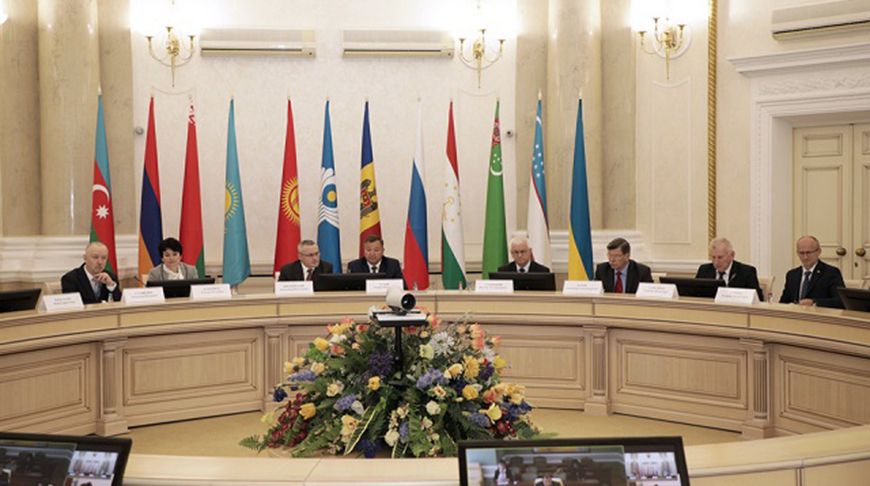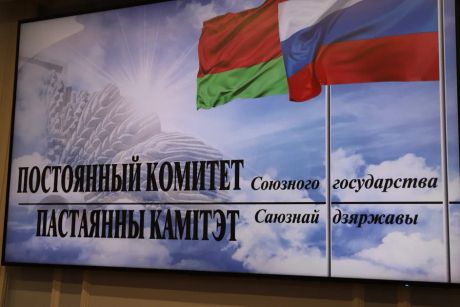Belarus to implement international technical assistance projects in environmental protection
16:33, 28 August

Photo courtesy of the Belarusian Natural Resources and Environmental Protection Ministry
Belarus intends to carry out international technical assistance projects in electric transport development and water resources management, Belarus Natural Resources and Environmental Protection Minister Andrei Khudyk said as he took part in a session of the CIS Interstate Environmental Council in Minsk on 27 August, BelTA learned from the press service of the Belarusian Natural Resources and Environmental Protection Ministry.
- Share on Facebook
- Share on VK
- Share on Twitter
“The Belarusian Natural Resources and Environmental Protection Ministry successfully attracts international technical assistance. We have a long experience of cooperation with international donors in addressing environmental protection issues. We are currently working on international technical assistance projects worth over $11 million in total,” Andrei Khudyk said. Some of the projects are aimed at management of freshwater ecosystems of international importance, electric transport development, management of surface water and groundwater in the cross-border river basins of the Bug and Neman, and phasing out ozone depleting substances. In addition, Belarus together with the UNDP is in talks with the UNDP-Russia Trust Fund over financing the projects to restore damaged peatlands in Belarus worth $5 million.
At present, the Natural Resources and Environmental Protection Ministry is carrying out twelve international technical assistance projects with the total budget of over $30 million and €11 million. According to Andrei Khudyk, these projects help build up the country's capacity in environmental protection, draft regulations relying on international experience, buy the necessary equipment, and organize events to fulfill international commitments.
Belarus is one of the world's leaders in terms of peatland restoration, Andrei Khudyk added. Since 2007, the ministry together with international donors has been implementing large-scale wetland management projects worth a total of over $12.5 million. “This has helped us restore almost half of 190,000 hectares of degraded and inefficiently drained peat swamp forests. Thanks to these measures, Belarus will be able to prevent the emission of almost 5.5 tonnes of carbon dioxide over the course of 20 years, which will eventually enable the country to set up a domestic carbon market,” the minister noted.
In addition, the Natural Resources and Environmental Protection Ministry attracts international funds to deal with organic pollutants in an eco-friendly manner. In 2018, Belarus received funding from the Global Environment Facility for the implementation of two large-scale international technical assistance projects worth a total of over $12 million. “These projects will help dispose of over 2,000 tonnes of hazardous waste containing polychlorinated biphenyl and almost 2,000 tonnes of pesticide waste as well as set up a facility for safe disposal of persistent organic pollutants and other hazardous wastes in one of the Belarusian regions. Such a facility will offer a comprehensive solution to the issues of disposal of persistent organic pollutants in Belarus and, in the long-term, will help get rid of all dangerous wastes,” Andrei Khudyk emphasized.
At the session, Andrei Khudyk was elected chairman of the CIS Interstate Environmental Council. The agenda of the event also included a wide range of environmental protection matters. The members of the council exchanged experience in reducing environmental pollution, improving the biological situation, and using modern information technologies in environmental protection activities. They also discussed the draft joint plan of action of the CIS Electric Power Council and the CIS Interstate Environmental Council.
Chairman of the CIS Executive Committee - Executive Secretary Sergei Lebedev presented Andrei Khudyk with a congratulatory address on the occasion of the 60th anniversary of the environmental protection system in Belarus.
The CIS Interstate Environmental Council was established on 8 February 1992 by the agreement on cooperation in ecology and environmental protection. On 31 May 2013, the CIS member states signed the agreement on cooperation in environmental protection that affirmed the status of the council. Its main tasks are to help harmonize relevant legislation, develop common approaches to environmental economics and environmental protection, as well as draw up and implement international programs and projects.






